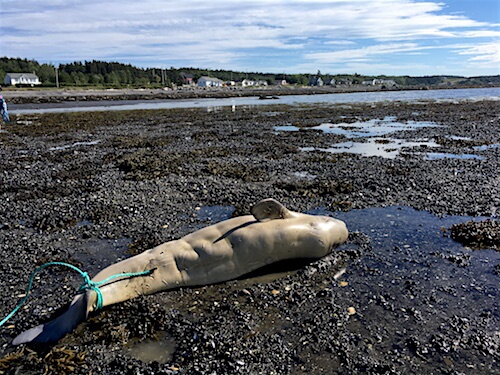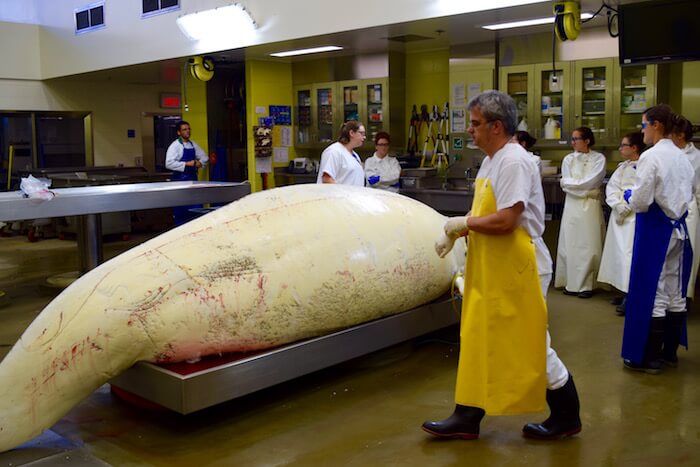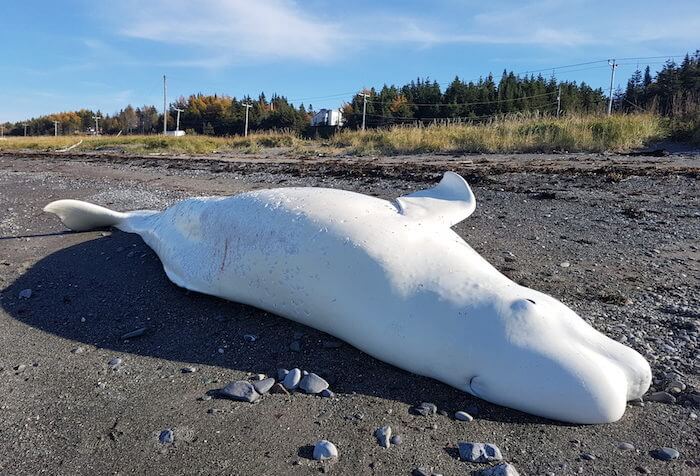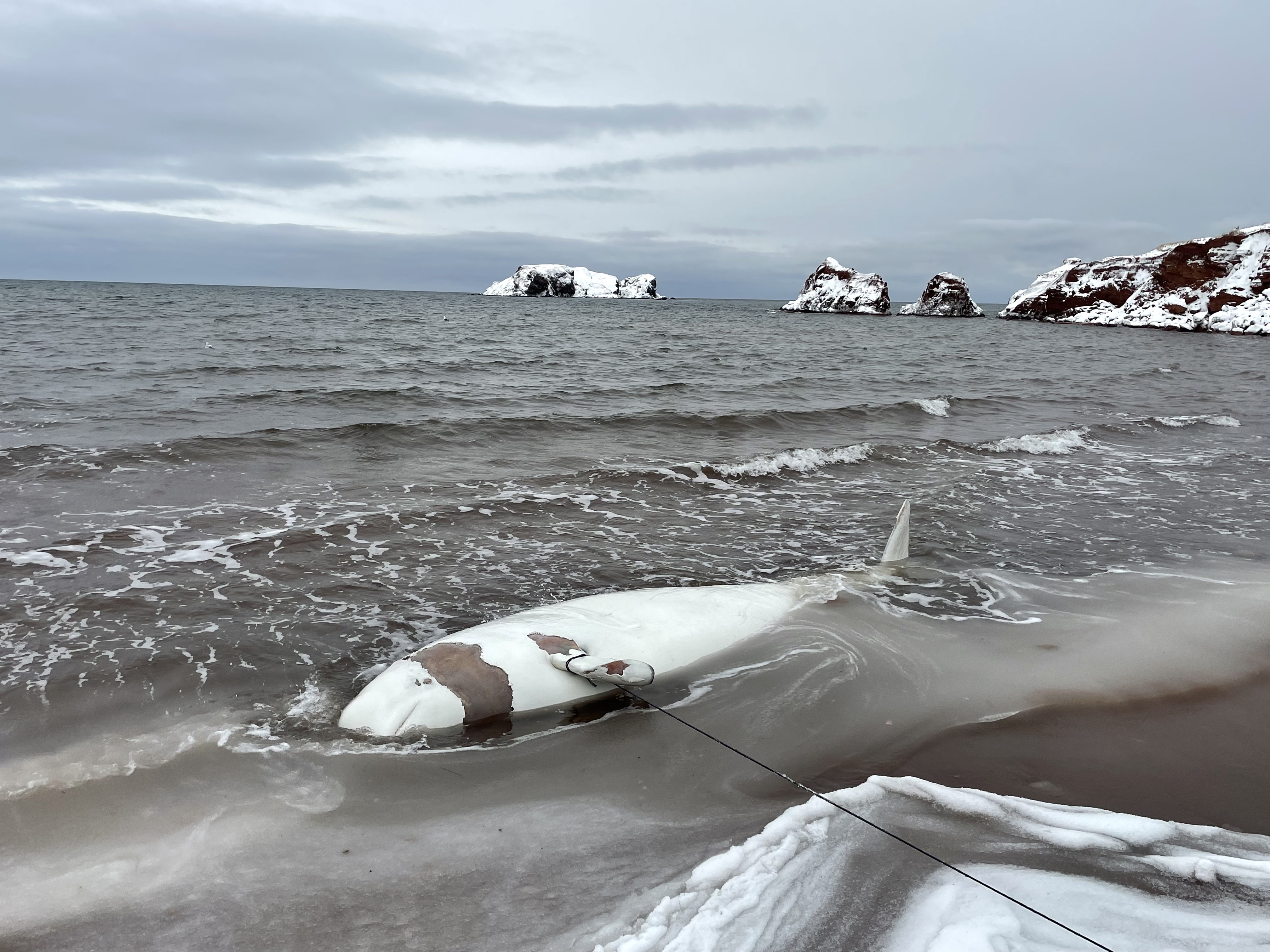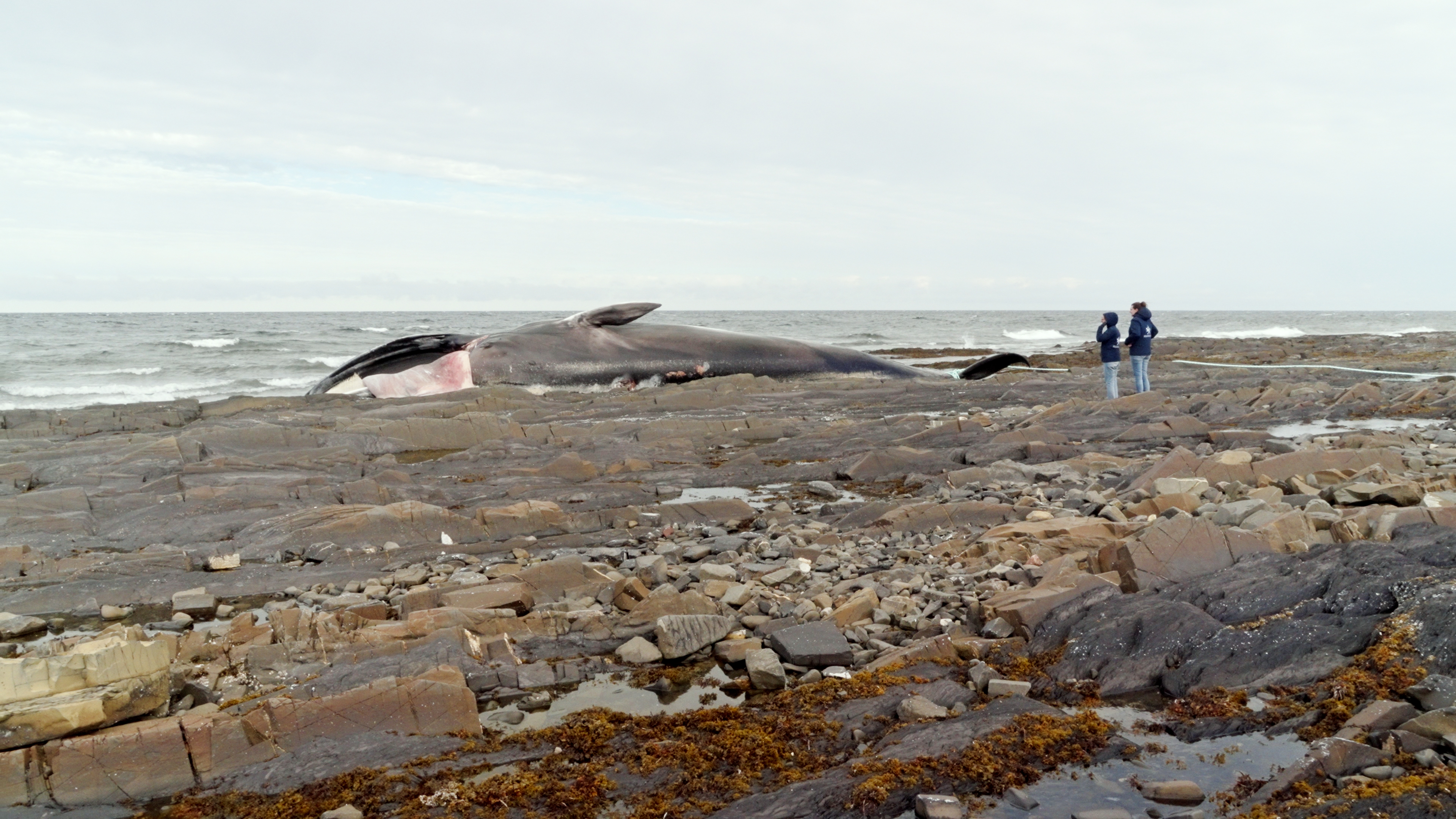On March 26, the first beluga carcass of 2018 was reported to 1-877-7baleine at Coin-du-Banc in the Gaspé Peninsula. The carcass was whole, but in a state of advanced decomposition, as is often the case when a carcass is found after the spring thaw. The animal was secured by volunteers to prevent it from being washed away with the high tide. Samples were taken, making 2018 the 35thstraight year for the beluga carcass monitoring program.
It was about the same time last year that the first beluga carcass was found, also in the Gaspé region, at L’Anse-à-Valleau. This incident marked the start of another grim year in terms of mortality for this endangered species.
2017: another bleak year for belugas
A total of 22 beluga carcasses were found and sampled on the shores of the St. Lawrence last year. This figure is slightly higher than the average of recent years (about 15), but it is especially the age of the belugas found that concerns GREMM’s scientific director Robert Michaud: “Once again this year, the number of newborns found dead is very high. This is a significant drain on the recovery potential of belugas”. Indeed, the number of newborn carcasses has risen from an annual average of 1 between 1983 and 2007 to more than 7 since 2008.
Two of the 10 young beluga carcasses were transported to the Faculty of Veterinary Medicine in Saint-Hyacinthe where Dr. Stéphane Lair and his team are carrying out a long-term investigation of the causes of beluga mortality. “Examination of the two calves suggests cases of mother-calf separation,” he explains. It is rather rare to recover newborns in good enough condition to allow for a necropsy, as the animal’s small size makes it overheat and decompose very quickly, leaving little in the way of clues to the history of the few day or even hours of its life.
According to the results of necropsies conducted by Dr. Lair’s team since 1983, the majority of newborns found dead are just a few hours or a few days old. They show no evidence of disease, but rather signs of dehydration and electrolyte imbalances. This suggests that these calves are dying without having been suckled by their mothers. The cause of these separations might be related to the physical fitness of the females. In fact, two of the three females transported to Saint-Hyacinthe showed signs of recent calving or current nursing, suggesting that their calves probably did not survive their mothers’ deaths.
The mortality of newborns and calving females is likely to accelerate their population decline, which began 20 years ago. For Véronique Lesage, scientific researcher at the Maurice Lamontagne Institute (managed by Fisheries and Oceans Canada), this situation “coincides with significant changes in their ecosystem that are creating unfavourable environmental conditions. We might not have direct or immediate control of these conditions, but we can take action on the stressors caused by our activities such as maritime traffic, disturbance to sensitive areas for mothers and young, contamination, habitat damage and competition with fisheries.”


